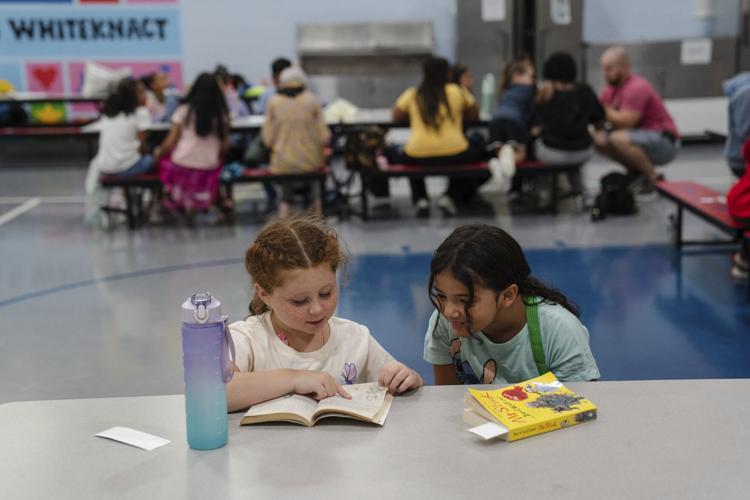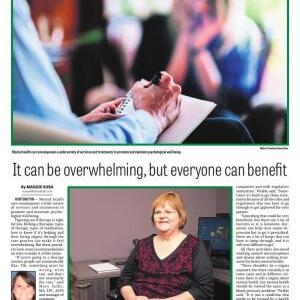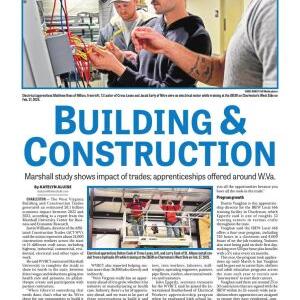EAST PROVIDENCE, R.I. “““Į╩ėŲĄö More than 20 states sued President Donald Trump“““Į╩ėŲĄÖs administration on Monday over billions of dollars in for after-school care, summer programs and more.
Some of the withheld money funds at Boys & Girls Clubs, the YMCA or public schools, attended by 1.4 million children and teenagers nationwide. Congress set aside money for the programs to provide academic support, enrichment and child care to mostly low-income families. But Trump“““Į╩ėŲĄÖs administration recently froze the funding, saying it wants to ensure programs .
Led by California, the lawsuit alleges withholding the money violates the Constitution and several federal laws. Many low-income families will lose access to after-school programs if the money isn“““Į╩ėŲĄÖt released soon, according to the suit. In some states, school restarts in late July and early August. The Department of Education did not immediately respond to a request for comment.
After-school programs for the fall are in jeopardy
Darleen Reyes drove through a downpour last week to take her son to a free Boys & Girls Club day camp in East Providence, Rhode Island. She told camp administrators the flash flood warning would have kept her away, but her son insisted on going.
Before kissing his mother goodbye, Aiden Cazares, 8, explained to a reporter, “““Į╩ėŲĄ£I wanted to see my friends and not just sit at home.“““Į╩ėŲĄØ Then he ran off to play.
In Rhode Island, the state stepped in with funding to keep the summer programs running, according to the East Providence club, and the state has joined the federal lawsuit. Other Boys & Girls Clubs supported by the grants have found ways to keep open their summer programs, said Sara Leutzinger, vice president for communications for the Boys & Girls Club of America. But there isn“““Į╩ėŲĄÖt the same hope for the after-school programming for the fall.
Some of the 926 Boys & Girls Clubs nationwide that run summer and after-school programs stand to close if the Trump administration doesn“““Į╩ėŲĄÖt release the money in the next three to five weeks, Leutzinger said. The clubs receive funding from the federal 21st Century Community Learning Centers program.
The YMCA and Save the Children say many of the centers they run are also at risk of shuttering.
“““Į╩ėŲĄ£Time is of the essence,“““Į╩ėŲĄØ said Christy Gleason, executive director of the political arm of Save the Children, which provides after-school programming for 41 schools in rural areas in Washington state and across the South, where school will begin as soon as August. “““Į╩ėŲĄ£It“““Į╩ėŲĄÖs not too late to make a decision so the kids who really need this still have it.“““Į╩ėŲĄØ
Rural and Republican-led areas especially affected
Schools in Republican-led areas are particularly affected by the freeze in federal education grants. Ninety-one of the 100 school districts that receive the most money per student from four frozen grant programs are in Republican congressional districts, according to , a left-leaning think tank. New America“““Į╩ėŲĄÖs analysis used funding levels reported in 2022 in 46 states.
Republican officials have been among the educators criticizing the grant freeze.
“““Į╩ėŲĄ£I deeply believe in fiscal responsibility, which means evaluating the use of funds and seeking out efficiencies, but also means being responsible “““Į╩ėŲĄö releasing funds already approved by Congress and signed by President Trump,“““Į╩ėŲĄØ said Georgia schools superintendent Richard Woods, an elected Republican. “““Į╩ėŲĄ£In Georgia, we“““Į╩ėŲĄÖre getting ready to start the school year, so I call on federal funds to be released so we can ensure the success of our students.“““Į╩ėŲĄØ
The Office of Management and Budget said some grants supported left-wing causes, pointing to services for immigrants in the country illegally or LGBTQ+ inclusion efforts.
But Congress“““Į╩ėŲĄÖ appropriation of the money was in a bill signed by Trump himself, said Maurice “““Į╩ėŲĄ£Mo“““Į╩ėŲĄØ Green, North Carolina“““Į╩ėŲĄÖs Democratic superintendent of public education. “““Į╩ėŲĄ£To now suggest that, for some reason, this money is somehow or another needing review because of someone“““Į╩ėŲĄÖs agenda, I think is deeply troubling,“““Į╩ėŲĄØ Green told reporters Monday after North Carolina joined the federal lawsuit.
In North Carolina, about 40 schools are already in session, so the state is already trying to figure out ways to keep programs going, using state and local money, along with some federal money that has not expired.
The freeze affects programs including mental health services, science and math education, and support for students learning English, North Carolina Attorney General Jeff Jackson said, with the most severe effects in smaller, rural school districts. The freeze could also lead to approximately 1,000 teachers and staff being laid off, Jackson said.
Summer clubs provide instruction for children
At the East Providence summer camp, Aiden, a rising third grader, played tag, built structures with magnetic tiles, played a fast-paced game with the other kids to review addition and subtraction, learned about pollination, watched a nature video and ate club-provided chicken nuggets.
Veteran teachers from his school corrected him when he spoke without raising his hand and offered common-sense advice when a boy in his group said something inappropriate.
“““Į╩ėŲĄ£When someone says something inappropriate, you don“““Į╩ėŲĄÖt repeat it,“““Į╩ėŲĄØ teacher Kayla Creighton told the boys between answering their questions about horseflies and honeybees.
Indeed, it“““Į╩ėŲĄÖs hard to find a more middle-of-the road organization in this country than the Boys & Girls Club.
Just last month, a Republican and a Democrat sponsored a resolution in the U.S. House celebrating the 165-year-old organization as a “““Į╩ėŲĄ£beacon of hope and opportunity.“““Į╩ėŲĄØ The Defense Department awarded the club $3 million in 1991 to support children left behind when their parents deployed for the Persian Gulf. And ever since, the Boys & Girls Club has created clubs on military installations to support the children of service members. Military families can sign up their kids for free.
“““Į╩ėŲĄ£I suspect they will realize that most of those grants are fine and will release them,“““Į╩ėŲĄØ said Mike Petrilli, president of the Thomas B. Fordham Institute, a conservative education policy think tank, speaking of the Trump administration“““Į╩ėŲĄÖs review of the 21st Century Community Learning Center grants.
But not everyone is so sure.
Families see few affordable child care alternatives
Aiden“““Į╩ėŲĄÖs mother has started looking into afternoon child care for September when kids return to school in Rhode Island.
“““Į╩ėŲĄ£It costs $220 a week,“““Į╩ėŲĄØ Reyes said, her eyes expanding. “““Į╩ėŲĄ£I can“““Į╩ėŲĄÖt afford that.“““Į╩ėŲĄØ
The single mother and state worker said she“““Į╩ėŲĄÖll probably ask her 14-year-old son to stay home and watch Aiden. That will mean he would have to forgo getting a job when he turns 15 in the fall and couldn“““Į╩ėŲĄÖt play basketball and football.
“““Į╩ėŲĄ£I don“““Į╩ėŲĄÖt have any other option,“““Į╩ėŲĄØ she said.
At home, Aiden would likely stay inside on a screen. That would be heartbreaking since he“““Į╩ėŲĄÖs thrived getting tutoring and “““Į╩ėŲĄ£learning about healthy boundaries“““Į╩ėŲĄØ from the Boys & Girls Club program, Reyes said.
Fernande Berard learned about the funding freeze and possible closure from a reporter after dropping off her three young boys for summer camp. “““Į╩ėŲĄ£I would be really devastated if this goes away,“““Į╩ėŲĄØ said the nurse. “““Į╩ėŲĄ£I honestly don“““Į╩ėŲĄÖt know what I would do.“““Į╩ėŲĄØ
Her husband drives an Uber much of the day, and picking up the kids early would eat into his earnings. It“““Į╩ėŲĄÖs money they need to pay the mortgage and everything else.
If her boss approves, she“““Į╩ėŲĄÖd likely have to pick up her children from school and take them to the rehabilitation center where she oversees a team of nurses. The children would have to stay until her work day ends.
“““Į╩ėŲĄ£It“““Į╩ėŲĄÖs hard to imagine,“““Į╩ėŲĄØ she said.
AP Education Writer Collin Binkley in Washington and Makiya Seminera in Raleigh, North Carolina contributed reporting.
















